Column: Ukrainian fight for democracy continues, and you have power in it
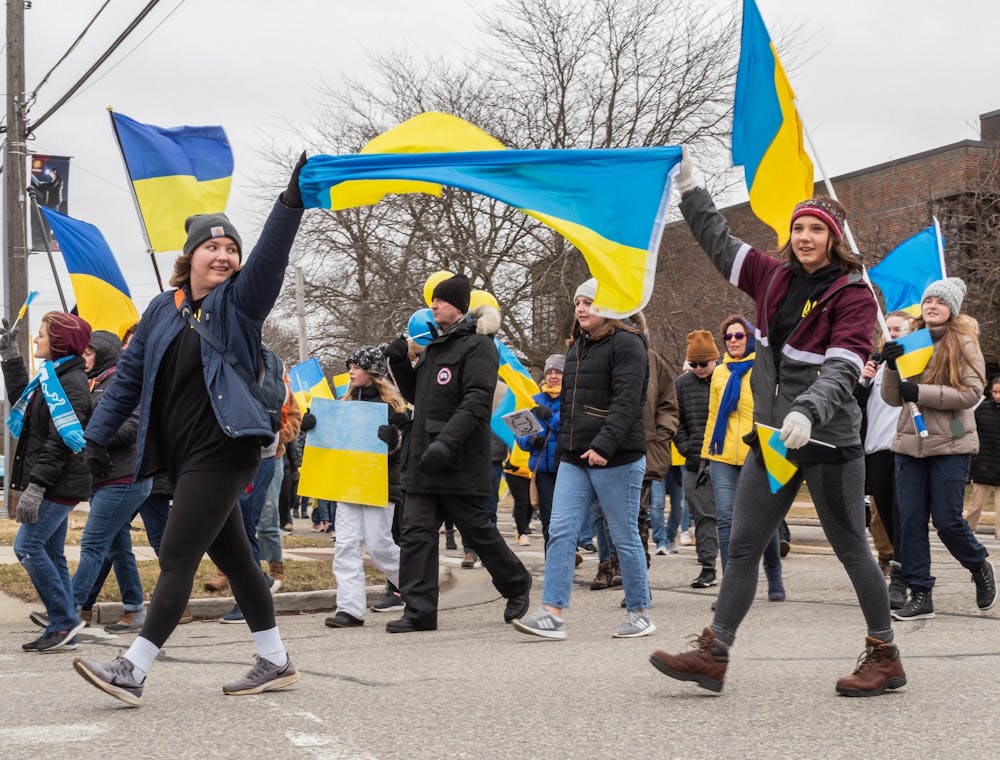
General cap: Students and supporting community members marched in support for Ukraine from the Student Activity Center to Island Park on Saturday, Mar. 26. With signs, flags, chants, and an entire community walking in unity, the community of Mount Pleasant show their love and support as Ukraine suffers at war with Russia.
Photo cap: Head organizer and fellow Ukraine citizen, Marina Valoshina (right), leading the No War March from the Student Activity to the Korean War Memorial, Saturday, Mar. 26.
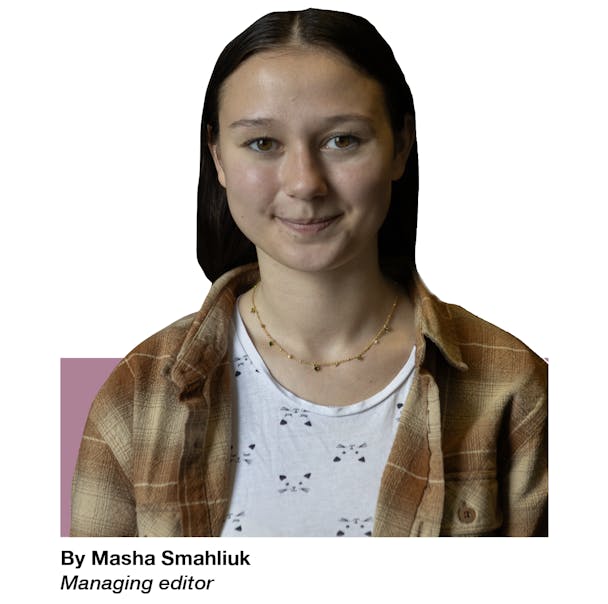
As American people are about to make a life-changing decision this November, there is a part of the world where people’s lives changed almost three years ago and never became the same.
Since February 2022, Russia has been murdering, torturing, raping, looting and bombing thousands of Ukrainians, in a countless campaign to erase the Ukrainian identity and culture. There is no person from Ukraine who isn’t being affected by this war daily; every single one has been scarred by it.
And I am one of those people, right next to you on Central Michigan University's campus.
As someone who was born and raised in Ukraine, I grew up with a deep love for our beautiful traditions, ancient language, rich culture and gorgeous land. And something that is very important to mention about this war is that it didn’t start just three years ago.
Historical relationships between Ukraine and Russia
I was 9 years old. Those were winter nights. I was drinking hot chocolate and watching Disney shows, but when I switched the channel, I would see fire, green uniforms and war.
It was 2014, and Russian soldiers invaded Crimea and parts of Donetsk and Luhansk oblasts.
I remember watching TV and being terrified that Russia would soon take my home and life. Since 2014, when I hear an airplane nearby, I still run and hide in the bathroom.
We had an anti-terrorism operation start in 2014, and the war was going on, but mostly in the Donetsk and Luhansk regions. In Crimea, Russia held an unlawful election, threatening people to vote to join Russia. Russia also banned indigenous Crimea Tatars government, organizations and media.
But Russia has always had imperial tastes and mentality. The systematic oppressions of Ukrainians started in the late 17th century. After Ukraine lost the war to Rzeczpospolita (now Poland), it signed a protectorate with Moscovia. The protectorate promised an independence of Ukraine, but soon Moscovia broke the promise and occupied our land.
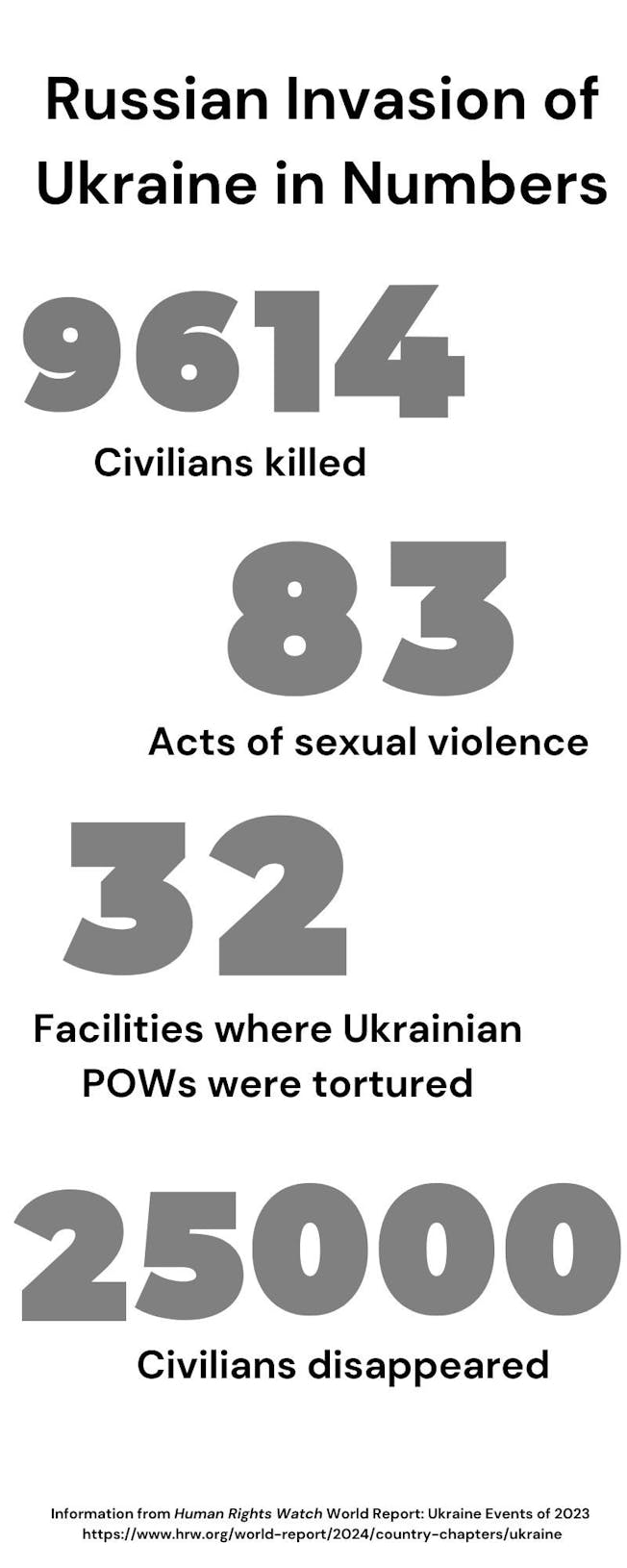
Moving to the next century, the Russian Empire burned down Zaporizhzhya Sich (Cossack state), and banned Ukrainian language, literature, schools and theater.
Some time later, the Soviet Union government exploited Ukrainian people and land to show a beautiful picture of a prosperous state to the western media. Well, it was a lie.
The Soviet government was terrorizing Ukrainian people and created a man-made famine, known as Holodomor. It is a recognized genocide of the Ukrainian people that took the lives of about 4 million.
The Soviet regime also killed Ukrainian writers and intelligentsia, and those mass murders were known as the "Executed Renaissance." In the death records, Soviets wrote that the reason of death is being “Ukrainian.”
Ukrainian idea and the fight for independence
But the Ukrainian identity and political ideas survived all those oppressions. Ukrainians had underground organizations, armies, writers and thought leaders who have been fighting for our independence for four centuries.
Today our fight continues. It doesn’t take place just on the battlefield; there are huge informational, cultural and educational fronts that are so important.
As you can see, Ukraine and Russia have never been “brother nations,” despite what Russian propaganda says.
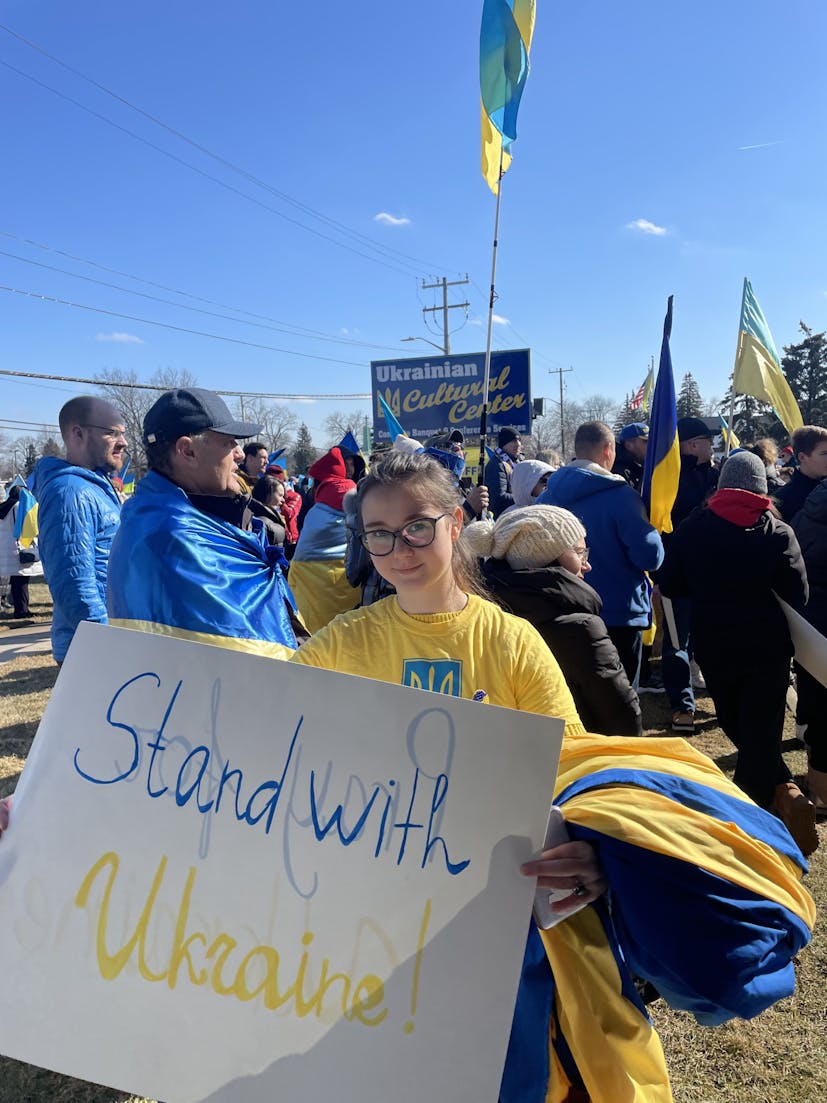
Ukrainians have never wanted to be a part of Russia, and we are not one nation. Ukrainian history starts three centuries before Moscow was even built.
We have never wanted Russia to bring the war to our home in the 21st century. There were also no reasons for Russia to attack us except for ambition: the Russian-speaking population of Ukraine have never been discriminated against, and there were no Nazis in Ukraine.
We do not want this war, and all that Ukrainian people dream about is the victory for Ukraine, independence of our home and safety for our families. But it is very hard to have a conversation with an aggressor who broke into your house and put a gun to your head.
Russia doesn’t want peace, because if they did, they would have never started this war. Russia has violated every single peace treaty and cease fire that it signed.
That’s why our war continues, and we need your help.
Same ideas, same mentality
American values of freedom, independence and democracy have always resonated with Ukrainians. The United States is a model for us of how we want our country to be.
We are forever grateful to every single American who has been supporting and standing with us. We see you, and your support has saved thousands of us, if not all.
And no, your taxes don't go straight to Ukraine. In fact, 90% of American aid to Ukraine stays in the United States, according to the Washington Post. The funds don’t go directly to Ukraine; they are being used to build new weapons for the United States and send the old ones to Ukraine. This creates new jobs for Americans and strengthens the American economy.
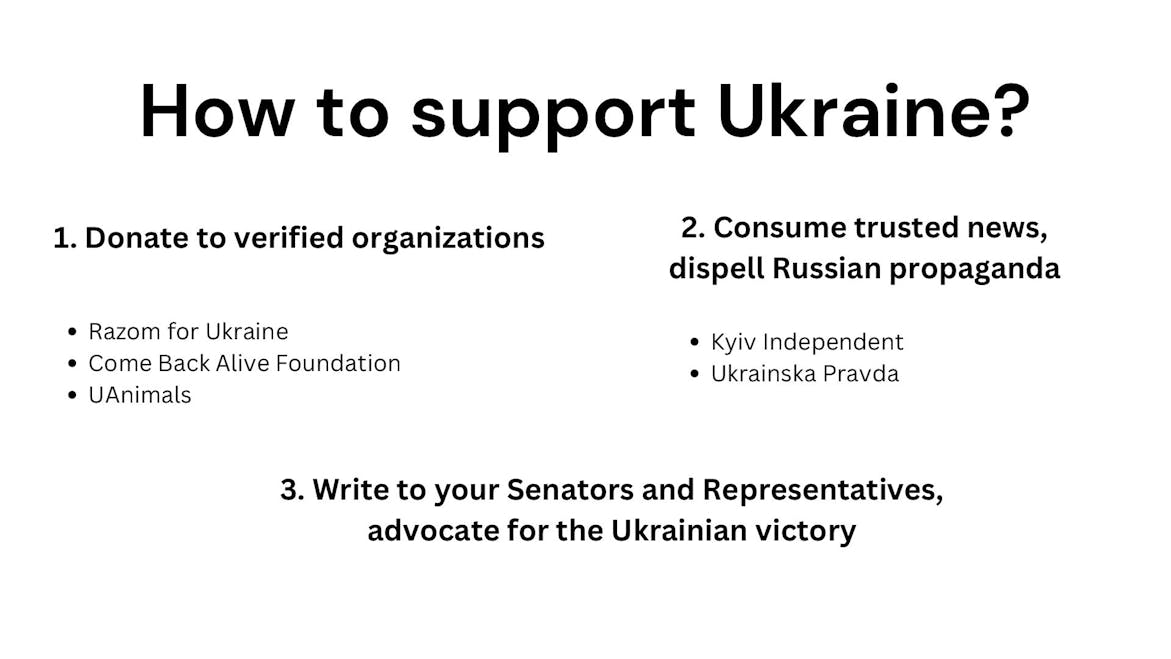
Ukraine can be a very important strategic ally for the United States because of our location, natural resources and same-minded people.
But more important than any strategic affairs, there are people’s lives and freedoms at stake.
Here in the United States you have precious privilege and luxury to vote, advocate for issues that concern you and fight for truth.
In your vote this November, you have the power to change my life and the lives of millions in Ukraine.
Masha Smahliuk, an international student from Ukraine, is Central Michigan Life's managing editor. She is a junior majoring in journalism and minoring in political science and creative writing.






